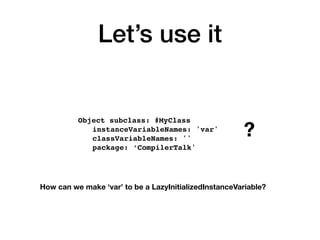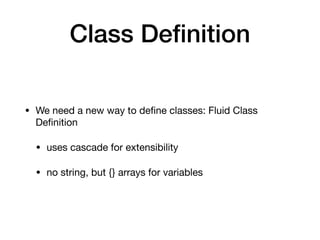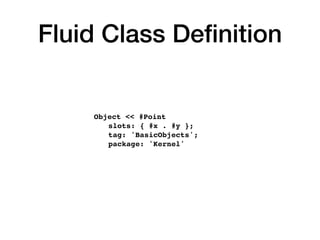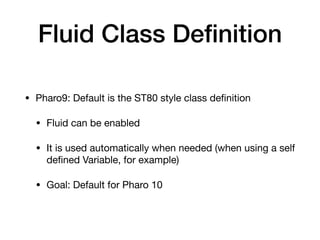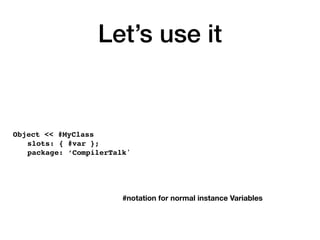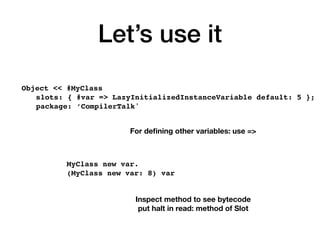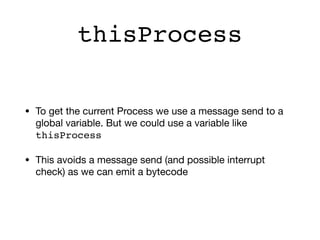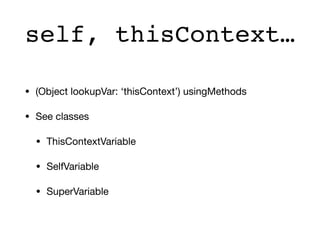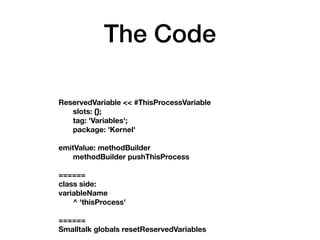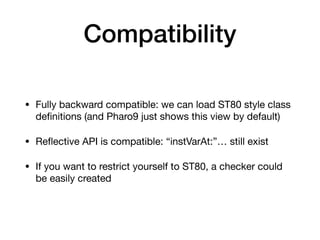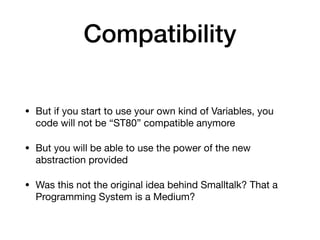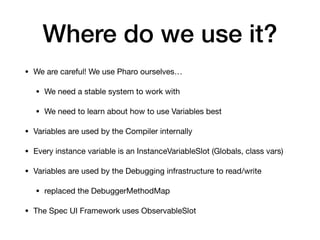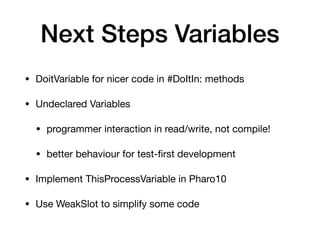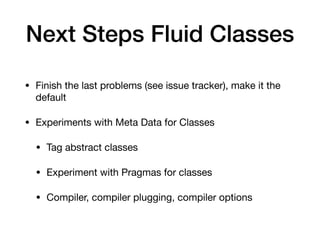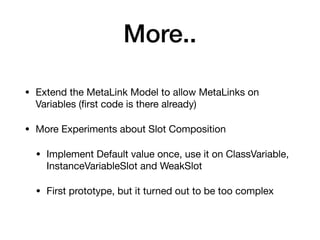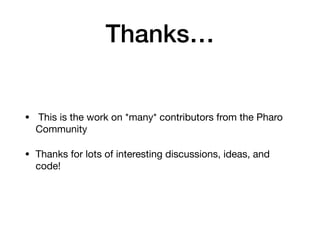Variables in Pharo can now be represented as objects in a class hierarchy. This allows defining custom variable types like lazy initialized instance variables. Classes can also be defined fluidly using a cascade syntax that supports specifying variable types. The new variable system is compatible with existing Smalltalk code while enabling new capabilities and a more reflective programming model. Further work includes improving debugging and development tools to leverage the new variable abstractions.
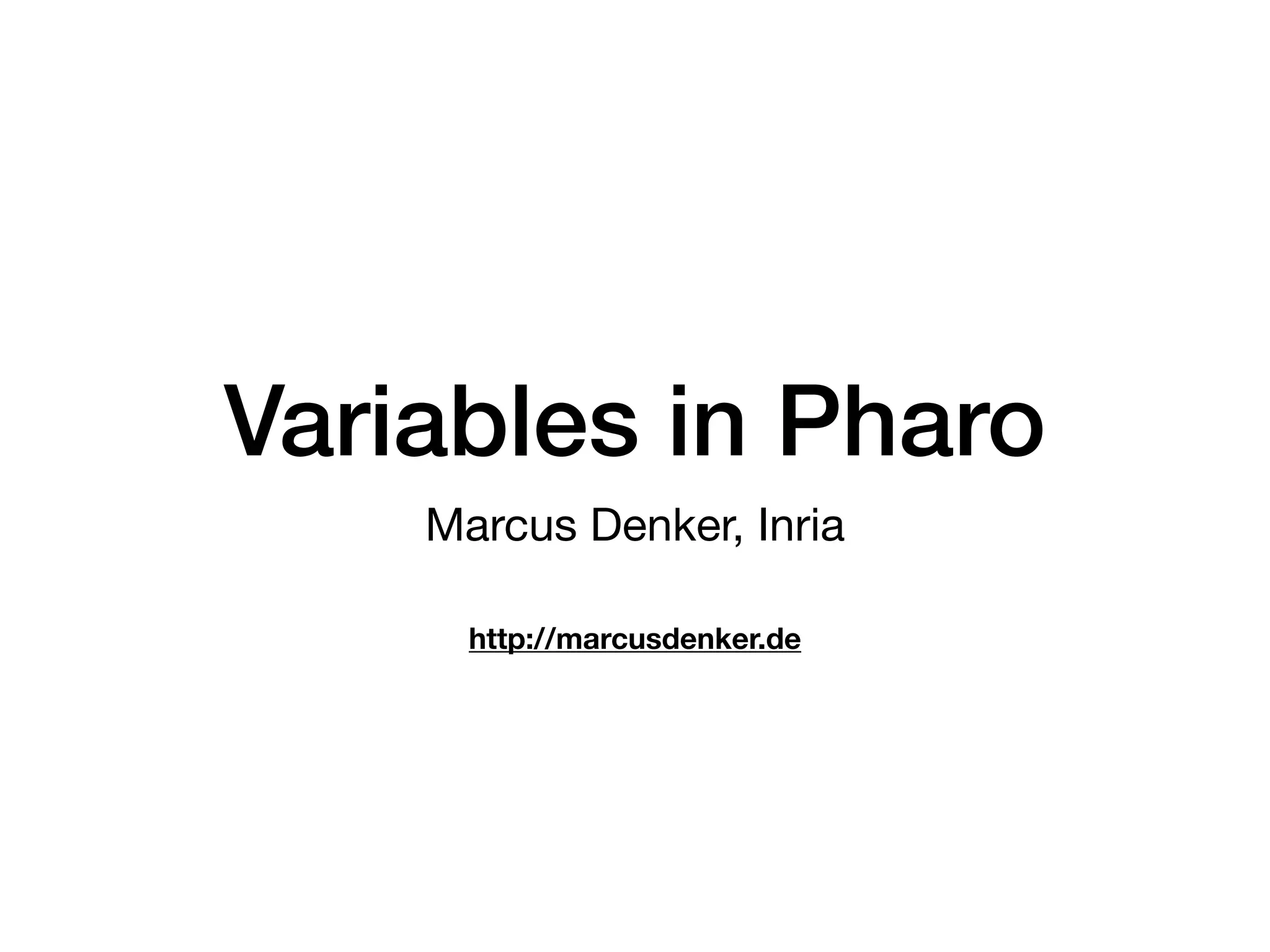
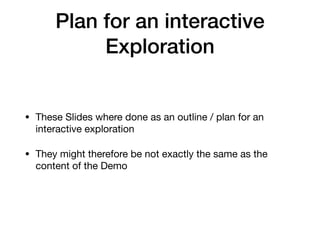
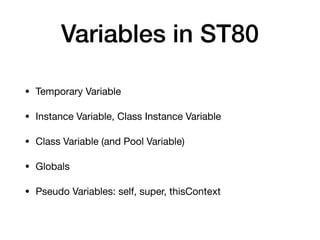
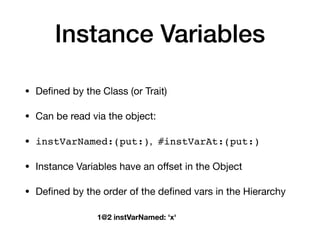
![Temporary Variable
• De
fi
ned by a method or Block
• Arguments are temps, too
• Can be read via the context
• #tempNamed:, tempNamed:put
:
• With Closures this is more complex than you ever want to
know!
[| temp | temp := 1. thisContext tempNamed: 'temp' ] value](https://image.slidesharecdn.com/variables-220916115539-0a8f1089/85/Variables-in-Pharo-5-320.jpg)
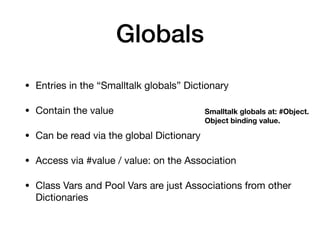
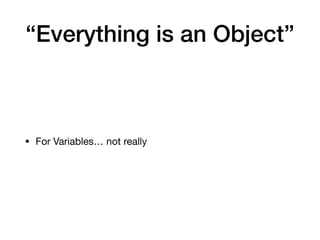
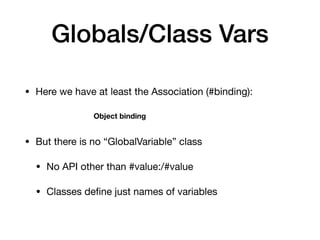
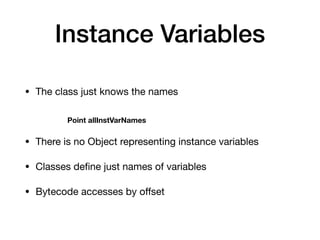
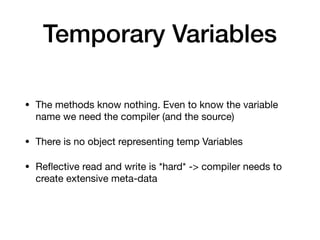
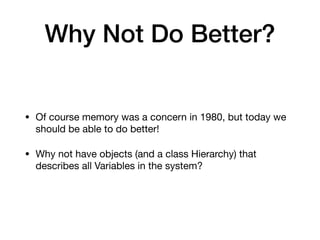
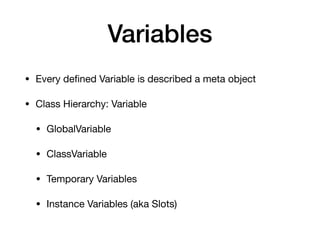
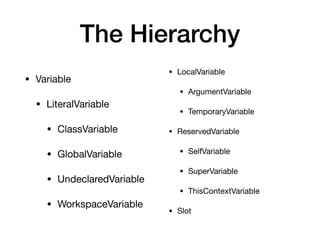
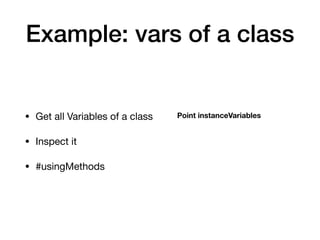
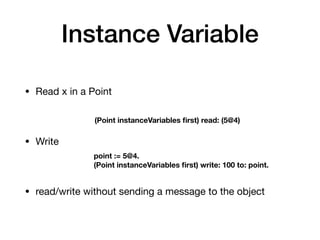
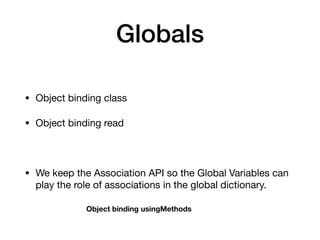
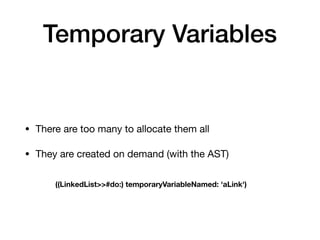
![#lookupVar:
• Every variable knows the scope is was de
fi
ned in
• Every scope know the outer scope
• #lookupVar: looks up names along the scope
[ | temp |thisContext lookupVar: 'temp' ] value.
[ | temp |thisContext lookupVar: ‘Object' ] value
(Point slotNamed: #x ) scope outerScope](https://image.slidesharecdn.com/variables-220916115539-0a8f1089/85/Variables-in-Pharo-18-320.jpg)
![Debugger: Read Vars
• In the Debugger we to be able to read Variables from a
DoIt.
• lookupVar, then readInContext works for all Variables!
• DoItIn: uses this:
[ | temp | temp :=1 . (thisContext lookupVar: 'temp')
readInContext: thisContext] value
Context>>readVariableNamed: aName
^ (self lookupVar: aName) readInContext: self](https://image.slidesharecdn.com/variables-220916115539-0a8f1089/85/Variables-in-Pharo-19-320.jpg)
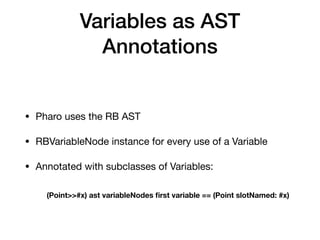
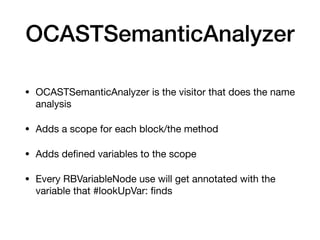
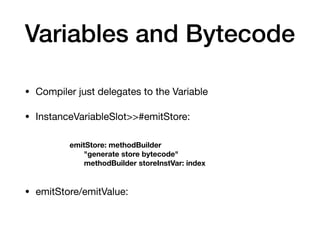
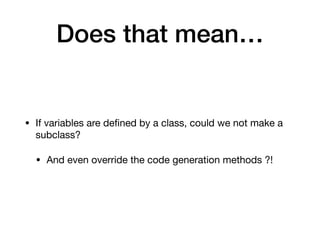
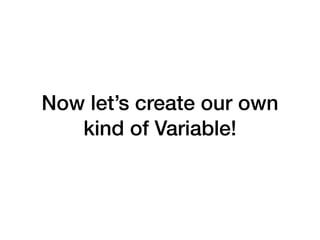
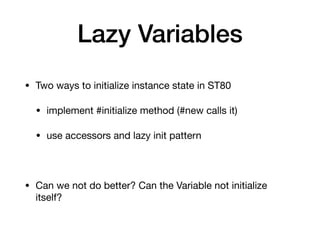
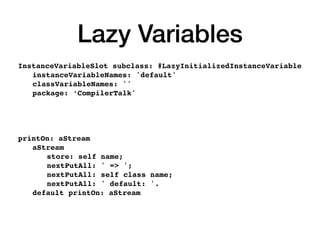
![Lazy Variables
read: anObjec
t
"if the value is nil, we write the default value
"
^ (super read: anObject) ifNil: [
self write: default to: anObject
]
emitValue: aMethodBuilde
r
"generate bytecode for '<varname> ifNil: [<varname> := default]'
"
aMethodBuilde
r
pushInstVar: index
;
pushDup
;
pushLiteral: nil
;
send: #==
;
jumpAheadTo: #target if: false
;
popTop
;
pushLiteral: default
;
storeInstVar: index
;
jumpAheadTarget: #targe
t](https://image.slidesharecdn.com/variables-220916115539-0a8f1089/85/Variables-in-Pharo-27-320.jpg)
